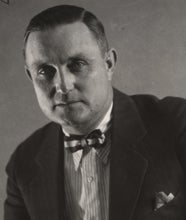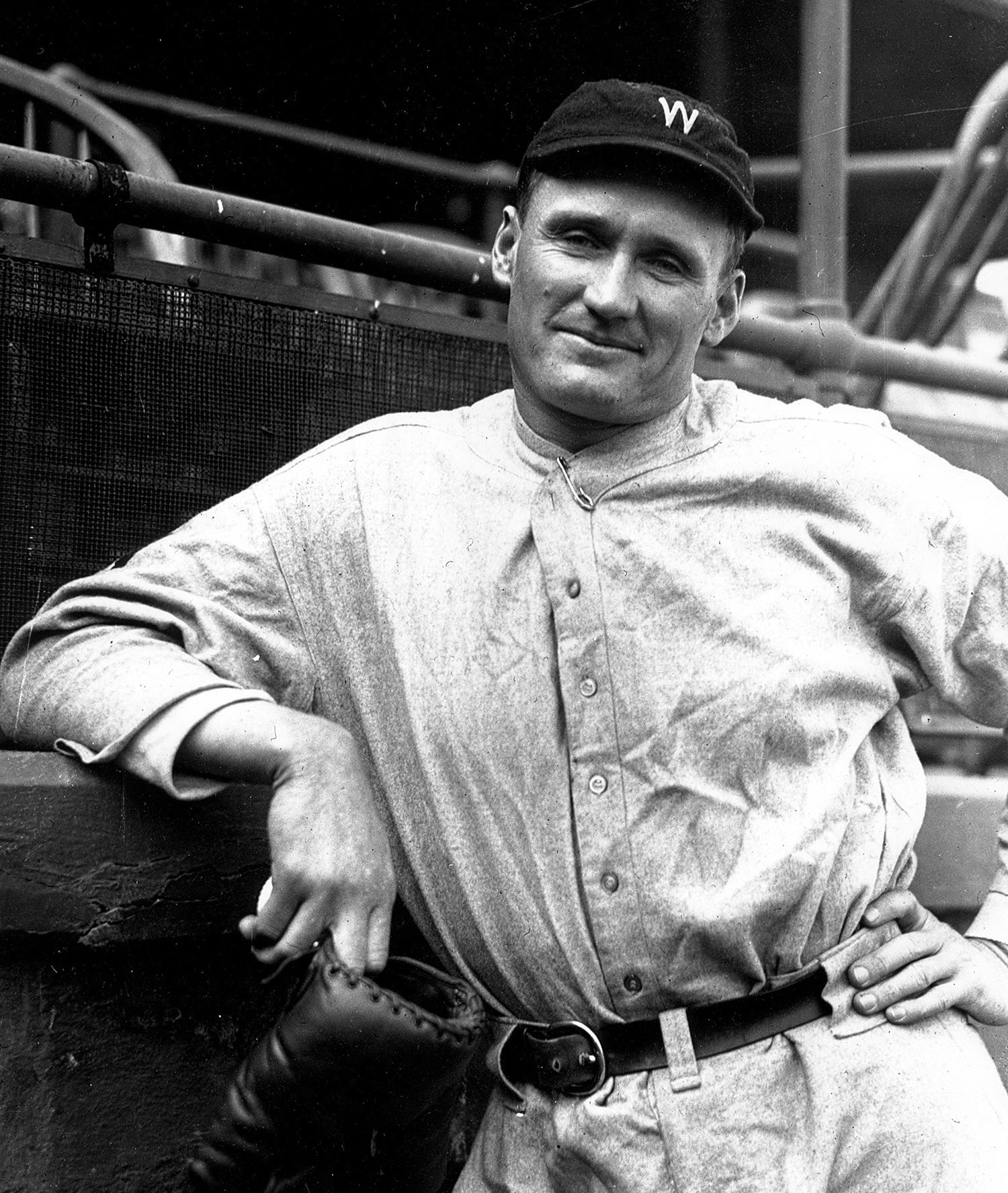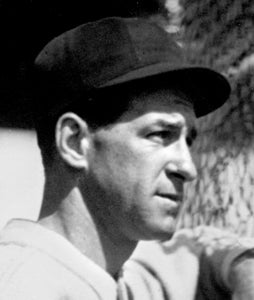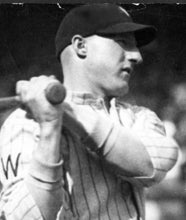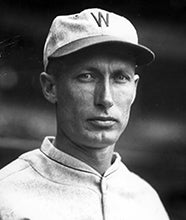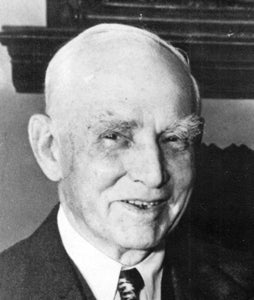- Home
- Our Stories
- Century Series
Century Series
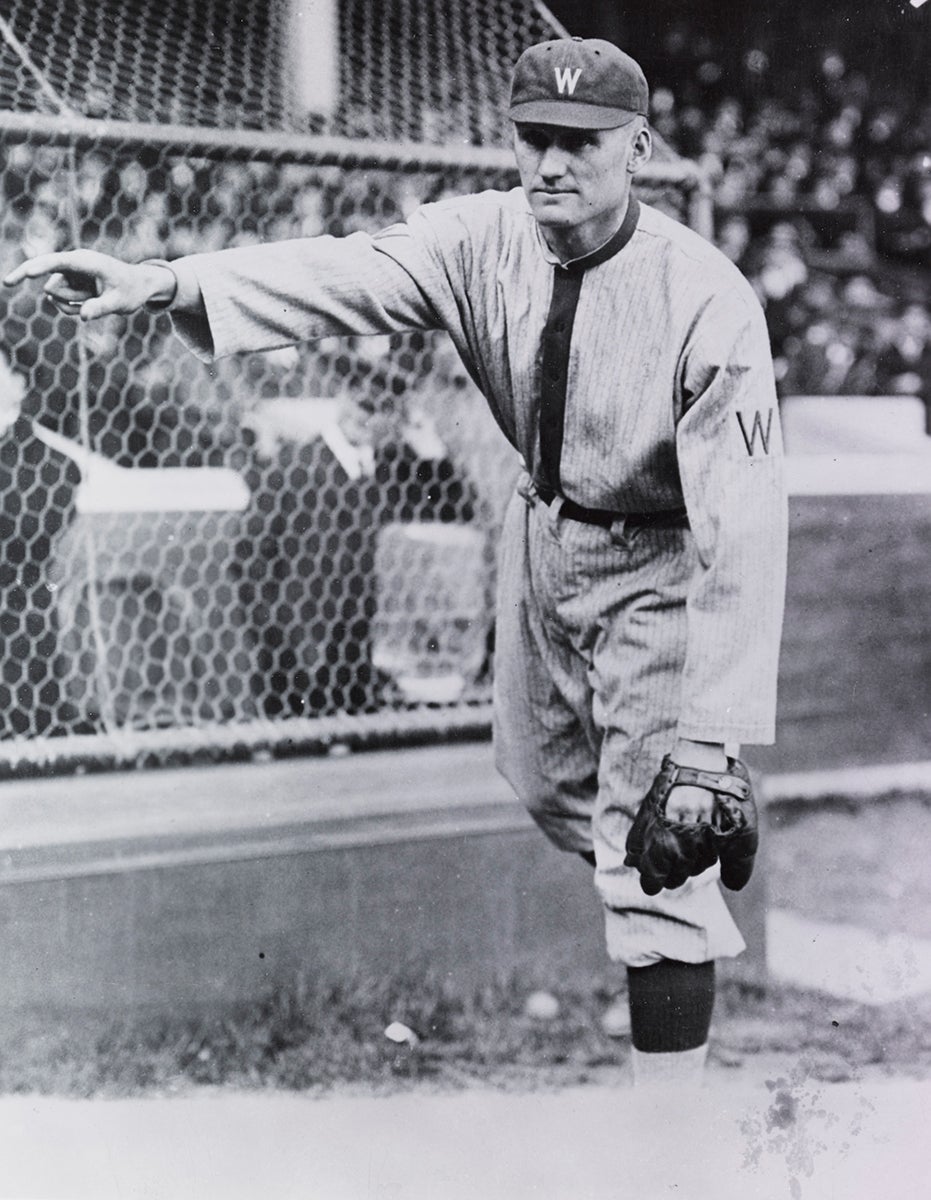
A despondent Walter Johnson was found sitting on a trunk, his knees drawn up to his chin, alone and in the far end of the Washington Senators clubhouse prior to the start of the seventh and deciding game of the 1924 World Series.
Arguably the greatest pitcher in the game’s history, “The Big Train,” now in his 18th big league season and with 377 career victories to this point, had led the only franchise he ever toiled for to its first Fall Classic. But now he had lost twice to the New York Giants in a pair of starts.
Asked by umpire/sportswriter Billy Evans how he was doing, Johnson sorrowfully shook his head and replied, “Not too good, Billy.”
After Evans pleaded with the rawboned righty that his two postseason losses would not diminish in any way a career of excellence, Johnson replied, “Billy, that’s nice of you to say such things, but I want to tell you that those games counted far more with me than the sum total of the hundreds I have pitched in my career.”
As depressed and disheartened as the future Hall of Famer – a member of the original Class of 1936 – was at that moment, feeling he had let down the only team he had known, euphoria and exaltation surprisingly awaited later that afternoon 100 years ago.
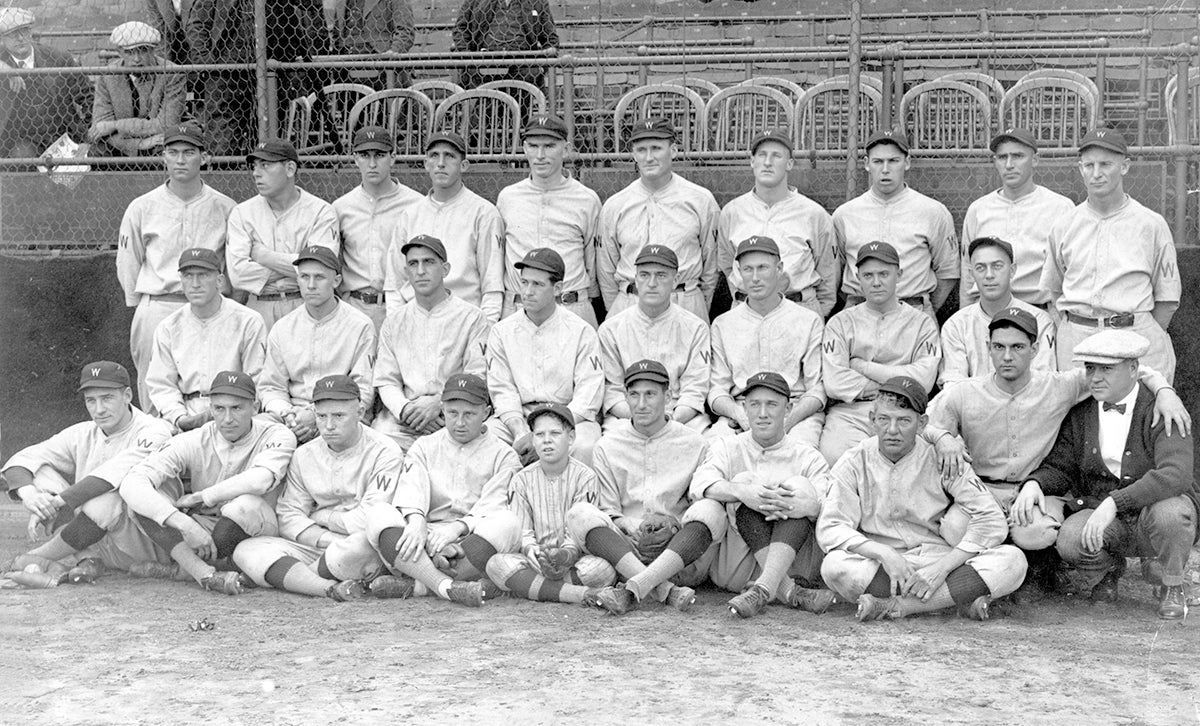
While the Giants – despite having young outfielder Jimmy O’Connell and veteran coach Cozy Dolan banned from the sport late in the regular season due to a gambling scandal – capturing the National League pennant was no surprise, having done so the previous three seasons and winning two World Series titles in the process, Washington was a franchise remembered for the derisive line: “First in war, first in peace and last in the American League.”
The Nationals or Nats, as they were sometimes known at the time, hadn’t experienced a first-place finish in the eight-team American League since the franchise’s 1901 inception. But 1924 was different, as Washington overtook the Yankees – winners of three consecutive AL pennants and led by Babe Ruth, whose league-high 46 homers far outclassed Washington’s total of 22 – by capturing 13 of its last 18 games.
The improbable Senators were led by the 36-year-old Johnson, who, despite relying more on a sweeping curve than his devastating fastball known across the baseball world, had a 13-game winning streak during the season’s second half and later won the AL MVP Award after leading the Junior Circuit with 23 wins, a 2.72 ERA, a .767 winning percentage, 38 games started, six shutouts and 158 strikeouts.
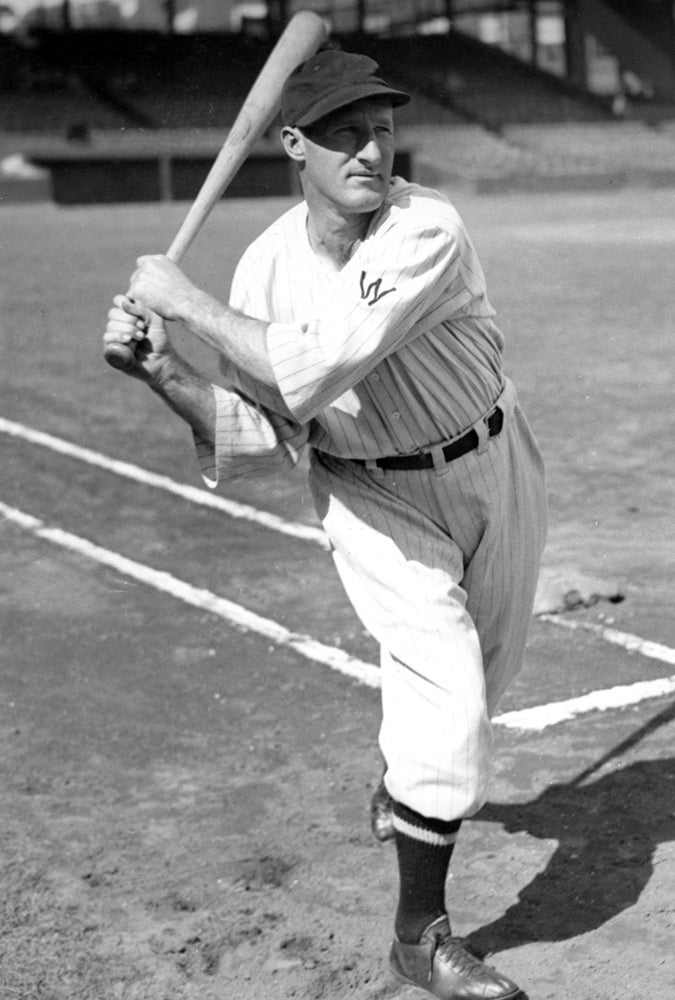
The rest of the team included player/manager Bucky Harris, known then as the “Boy Wonder,” who, at 27, was in his inaugural year as skipper, closer Firpo Marberry and future Hall of Fame outfielders Goose Goslin and Sam Rice.
In the World Series opener, New York’s Art Nehf and Johnson battled for all 12 innings – the Big Train whiffing 12 while allowing homers to future Hall of Famers George “High Pockets” Kelly and Bill Terry – before the visiting Giants prevailed, 4-3. Roger Peckinpaugh’s walk-off double in the bottom of the ninth gave the Nats a 4-3 triumph in Game 2, while the next contest, the first of three straight at the Polo Grounds, had the home team winning, 6-4.
After a 7-4 Washington win in the fourth game, New York roughed up Johnson in a 6-2 decision, the legendary hurler allowing 13 hits in eight innings. With the championship on the line, Washington southpaw Tom Zachary came up big for the hometown fans in a complete game 2-1 victory in Game 6, Harris knocking in both runs with a two-run single in the fifth inning.
For a World Series often credited as one of the best in the sport’s history, its Game 7 provided a fitting finale.
Played on the afternoon of Friday, Oct. 10 – lights at a ballpark were still years away – 31,667 eager fans came to Griffith Stadium looking forward to one of the most historic sporting events Greater Washington had ever seen. Broadcaster Graham McNamee brought the game’s action across the country via radio.
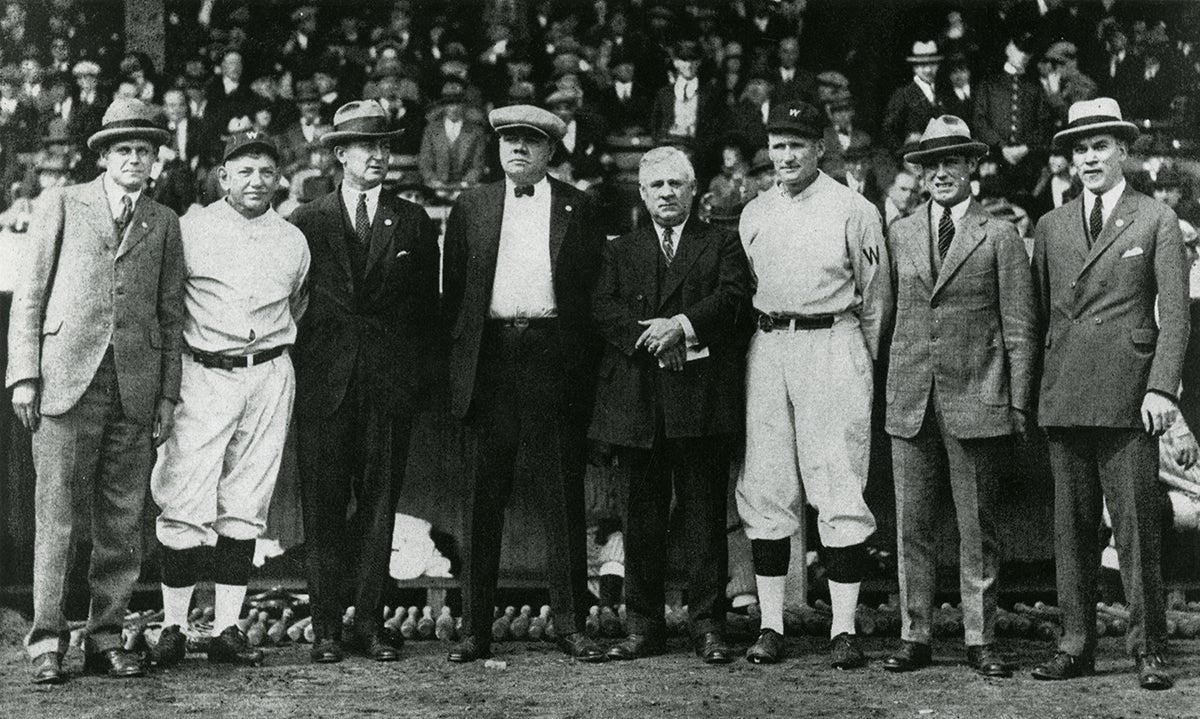
Game 7 was scoreless until the bottom of the fourth when Harris – who had socked only one home run during the regular season – clubbed his second of the series, a solo shot to deep left field off Giants starter Virgil Barnes. Chasing the homer was future Hall of Famer Hack Wilson, the MLB single-season record holder with 191 RBI for the 1930 Cubs, who dove over the barrier and landed on his head.
New York got on the scoreboard with three runs in the top of the sixth, highlighted by a pair of Nats errors, to take a 3-1 lead.
With the Giants needing only four more outs in order to capture their third world championship in four years, Harris again came through with a bad hop two-run single to left field over 18-year-old third baseman Fred Lindstrom.
Having pinch-hit for relief ace Marberry in the bottom of the eighth, Harris called on Johnson – who had started Games 1 and 5 – in relief. Pitching in and out of trouble over his four innings of work, Johnson gave up three hits and three walks but managed to keep the game tied, 3-3.
With the nation’s capital starving for a baseball crown, the Senators came through in the bottom of the 12th against New York’s fourth pitcher, Jack Bentley, who had, much like Johnson, already started two games in the series.
With one out, Muddy Ruel lifted a pop fly behind home plate that catcher Hank Gowdy dropped after tripping over his mask. Given a reprieve, Ruel doubled down the left field line to put the winning run on base. Johnson, a career .235 hitter, followed with a grounder that shortstop Travis Jackson fumbled for an error, with Ruel holding at second base.
Up next was Earl McNeely, a rookie center fielder who made his big league debut in August after being purchased from the Pacific Coast League’s Sacramento Senators for $50,000. His sharp grounder to third base – what some observers considered a potential double play ball – instead took a bad hop (legend has it that the ball struck a pebble) in front of Lindstrom that plated Ruel from second. Within seconds of the series-ending hit, the Griffith Stadium crowd bounded out of the stands and onto the field. Bedlam ensued.
“I want to thank all of the boys for trying so hard to win a game for me,” said Johnson in the Washington clubhouse after his rousing win. “The one ambition in my life was to get in a World Series and win a game. That ambition has been realized, and I’m grateful to the players who helped me to win today. This was the greatest day of my life.”
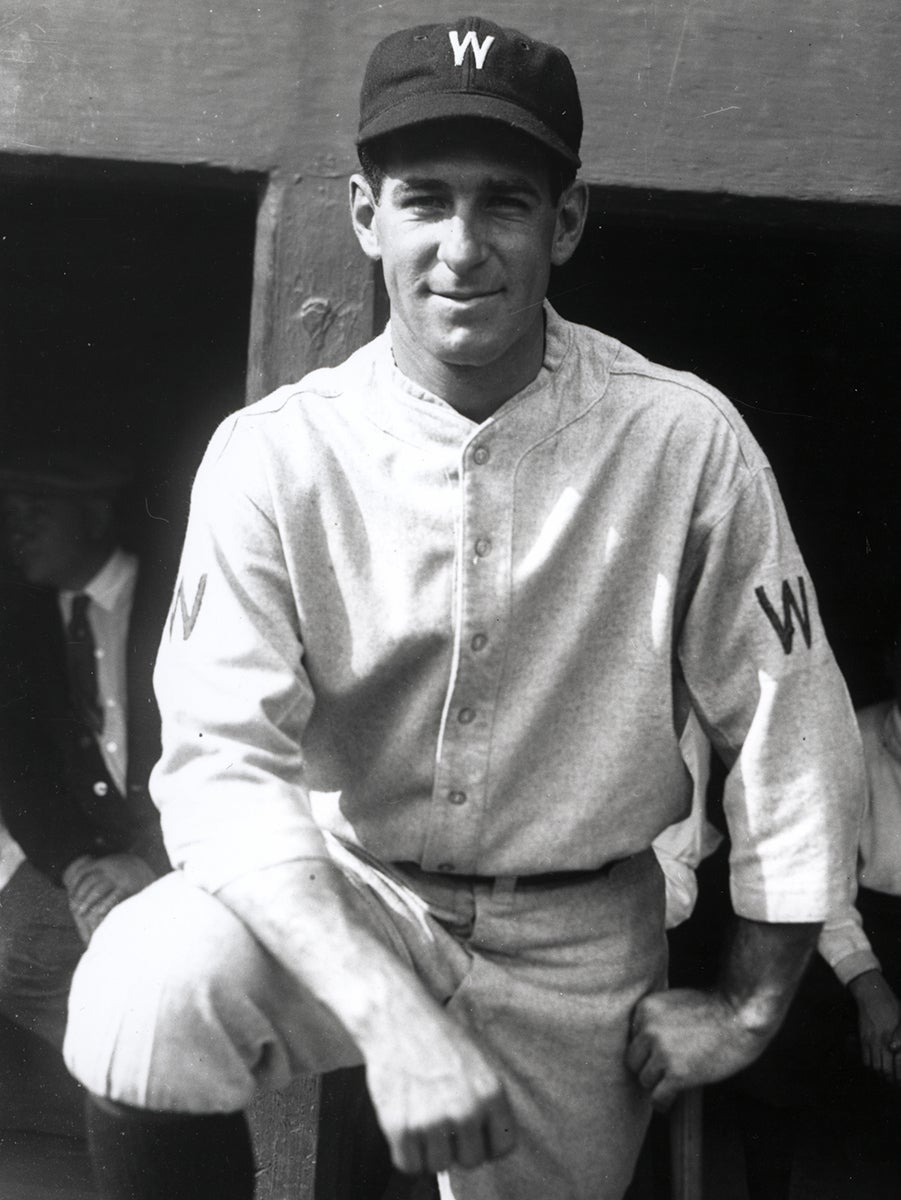
Other ballplayers also chimed in on one of the more epic postseason games in history.
“This should be the greatest story ever written. Unfortunately, the events of the last few hours have so completely dazed me that I still feel we’re going to play another game tomorrow,” Harris said. “I’ve also heard it said, ‘It’s all over but the shouting.’ This time that’s all wrong. I can’t believe it really is all over and I’ve never heard such shouting in my life.
“It’s hard to analyze my feelings tonight, but the biggest thrill I’ve gotten out of the biggest moment of my life was the glorious comeback of Walter Johnson…I have no way of knowing exactly how Walter Johnson felt during the critical last innings of the game, but if he got anything like the ‘kick’ out of those final innings that I got, he must be the happiest mortal walking the sphere.”
McNeely relayed what it was like being up at bat in the last half of the 12th inning with the winning run on second and Washington’s first world championship on the line.
“Just then I remembered,” said McNeely, “how Walter Johnson was bearing down and stopping the Giants with his wonderful brand of hurling – how Muddy Ruel had just doubled to reach second and set the stage for me; remembered that Bucky Harris had kept us in the thick of this battle, first with his homer in the fourth and then with his timely single [that] drove in the tying runs.
“And I went after the first good pitch Bentley gave me. With the aid of a lucky bounce, it scored the big run. That was the biggest thrill of my life – that bounce over Lindstrom’s head. Walter Johnson’s appearance in the box pitching his own brand of baseball – the superior brand – made us fight. We just couldn’t lose again behind him. Walter is the man who put us over. He stood the Giants on their proverbial ears during the four innings he worked, fanning five batters.
“I didn’t get but one hit but, boy, what it did mean. I know it was a lucky one, but ain’t all hits lucky?”
Bentley, Game 7’s losing pitcher, felt the need to pay homage to Johnson.
“If we, the Giants, had to lose, we are glad it was to old Walter,” Bentley said. “For 18 long years, he had faced on the diamond arena every form of batting skill that the broad empire of baseball could furnish. And never until the last week had he threatened to lower that mighty right arm in the impotence of defeat.
“Then just as in the dusk of his career a dilatory but not wholly unkind fate had finally carried him into a World Series, so today, in the twilight of the greatest of baseball series, the fickle goddess smiled upon Walter and dumped the gold and glory of her lap into his outstretched hands.”
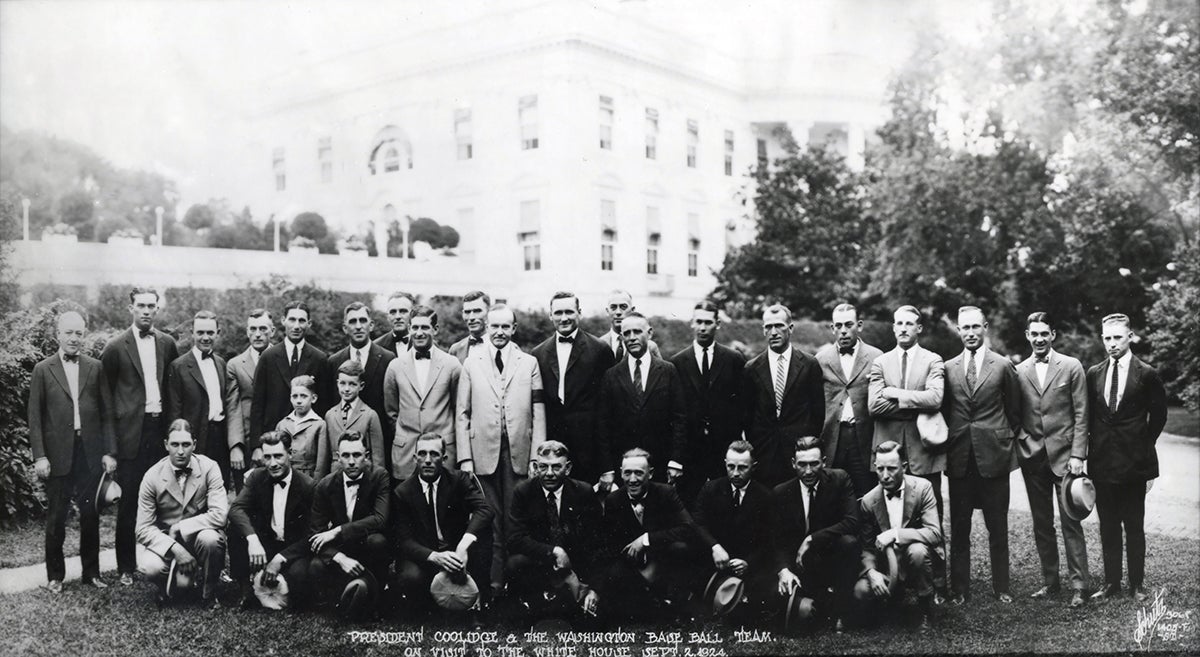
Even President Calvin Coolidge, America’s 30th president who served from 1923-29, attended the thrilling Game 7 with his wife, Grace. “Silent Cal” issued a statement immediately after returning to the White House.
“Of course I am not speaking as an expert or as a historian of baseball, but I do not recollect a more exciting world’s series than that which has finished this afternoon,” said Coolidge, having also attended Games 1 and 6. “The championship was not won until the 12th inning of the last game. This shows how evenly the teams were matched. I have only the heartiest of praise to bestow upon the individual players of both teams.
“Naturally, in Washington, we were pleased to see Walter Johnson finish the game pitching for our home team and make a hit in the last inning that helped win the series. It has to be kept in mind that though he was not successful in the two games that he pitched, that it was his skill that had won the pennant and put Washington into the World Series. Everyone was pleased to see him come back at the close of the last game.
“The three contests which I witnessed maintained throughout a high degree of skill, and every evidence of a high class sportsmanship that will bring to every observer an increased respect for and confidence in our national game. It would be difficult to conceive a finer example of true sport.”
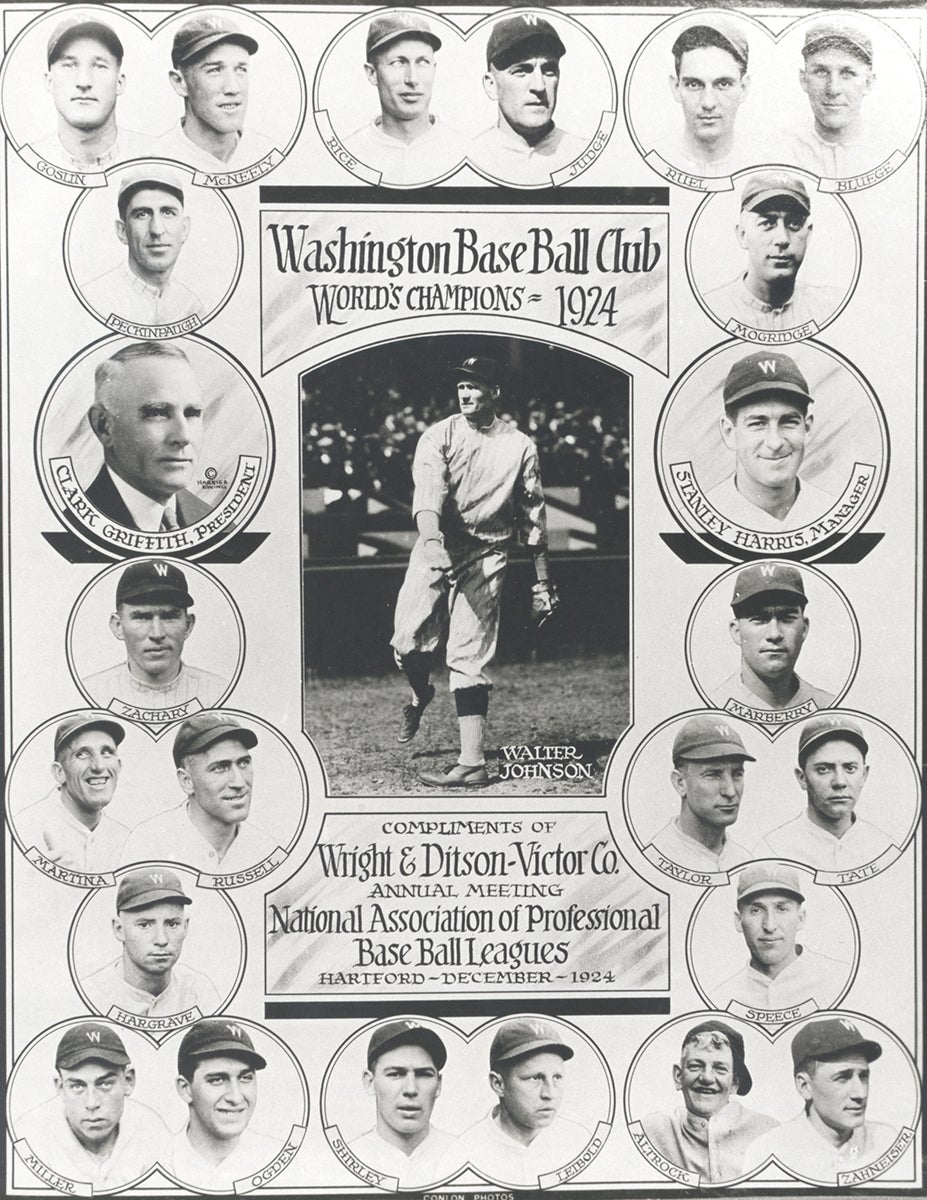
An editorial that appeared in the Washington Post the day after Game 7 summed up the ensuing joy, reading, in part, “At precisely 5:04 p.m., McNeely bludgeoned his way to everlasting fame with a hit that was heard ‘round the world and started the greatest public demonstration ever enacted in the Nation’s Capital or anywhere else.
“Within less than 10 seconds after McNeely’s hit, 35,000 men, women and children, delirious with joy, broke into a bedlam on the field that had never been duplicated in point of volume and intense excitement in the annals of sporting history.”
Another report relayed that Washington celebrated the winning of its first baseball championship with as much noise and racket as it greeted the news of the end of World War I, with every street cheering the arrival of the Senators in baseball’s promised land. Up Pennsylvania Avenue to the White House, a cheering mob surged. Baseball had conquered the city and led its followers in parade.
In 1938, as part of a series of columns by Washington Post sportswriter Shirley Povich in which Washington owner Clark Griffith reflected on his 50 years in baseball, the Senators' chief recalled speaking to a forlorn Walter Johnson after Game 6 of the 1924 World Series, making light of the big pitcher’s failures.
“Never mind what has gone before, Walter,” Griffith said, “we’ll still beat the Giants. Go home and rest. Don’t let everybody shake your hand. It won’t do your pitching arm any good. We may need you tomorrow. I’d like to see you in there.”
Johnson’s response: “I’d give everything I own to be in there tomorrow, but I don’t blame Bucky Harris. He can’t afford to take another chance on me. I’m washed up in this series. But I’d like one more shot at ’em.”
According to Griffith, never had he witnessed such an uproarious greeting as was showered on Johnson when the fans realized he was getting another chance in the World Series.
When “The Big Train” passed away on Dec. 10, 1946, at the age of 59, stars of the 1924 Senators carried the Washington legend’s casket to the grave, including Nick Altrock, Ossie Bluege, Joe Judge, Peckinpaugh, Rice, Ruell, Zachary and trainer Mike Martin. Harris was an honorary pallbearer, along with Griffith and Bentley, the Giants' pitcher in that fateful Game 7.
This 1924 title would be the lone World Series captured by the Washington Senators, the franchise relocating to Minnesota after the 1960 season. While the Twins went on to celebrate Fall Classic triumphs in 1987 and ‘91, another world championship wouldn't be won in the nation’s capital until 2019 with the Washington Nationals.
Bill Francis is the senior research and writing specialist at the National Baseball Hall of Fame and Museum
MEMORIES AND DREAMS
This story was originally published in Memories and Dreams, the Hall of Fame’s bi-monthly magazine. Memories and Dreams includes in-depth profiles of Hall of Famers and regular features on unforgettable legends and moments from the National Pastime.
PLAN YOUR VISIT
The memories you’ll make here will last a lifetime. Awed by priceless artifacts. Moved by stories and triumphs that inspired and united a nation. Find your way to the National Baseball Hall of Fame and Museum, and you’ll make history of your own.
MUSEUM MEMBERSHIP
Through the Museum's Membership Program, baseball fans from around the country and around the world can be part of the team that is preserving the Game’s history and celebrating the all-time greats.
MEMORIES AND DREAMS
This story was originally published in Memories and Dreams, the Hall of Fame’s bi-monthly magazine. Memories and Dreams includes in-depth profiles of Hall of Famers and regular features on unforgettable legends and moments from the National Pastime.
PLAN YOUR VISIT
The memories you’ll make here will last a lifetime. Awed by priceless artifacts. Moved by stories and triumphs that inspired and united a nation. Find your way to the National Baseball Hall of Fame and Museum, and you’ll make history of your own.
MUSEUM MEMBERSHIP
Through the Museum's Membership Program, baseball fans from around the country and around the world can be part of the team that is preserving the Game’s history and celebrating the all-time greats.

